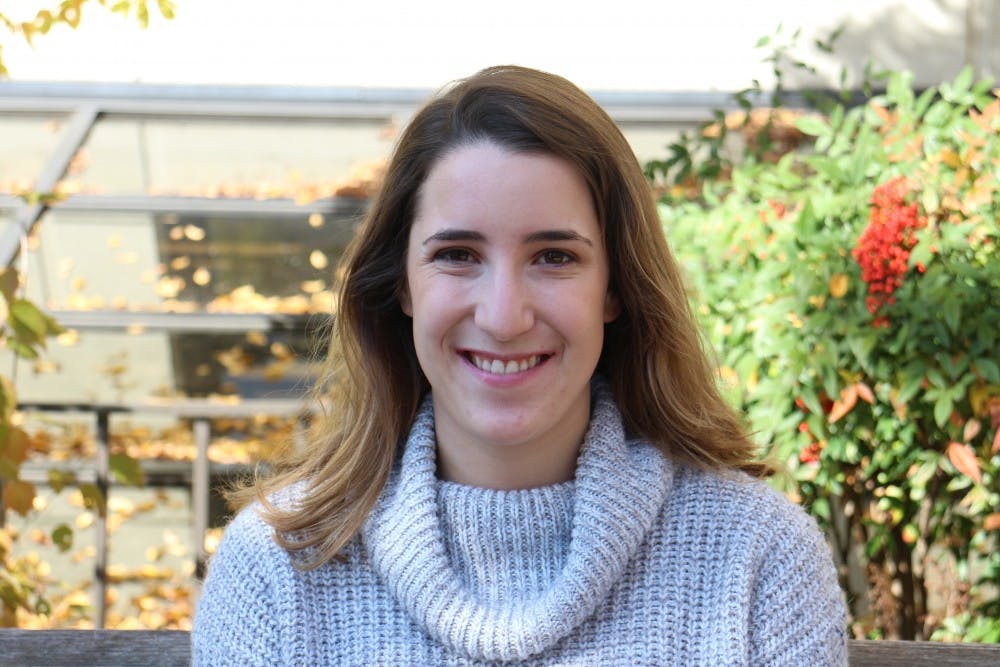I’m a huge fan of Netflix’s smash hit show, “Stranger Things.” Nearly everyone I interact with on campus has binged watched the second season since its recent premiere. I consider myself a proud member of the majority on this. Director Duffer Brother’s usage of 80’s tropes, music and hair products (see Steve Harrington’s Farah Fawcett spray) bring forth a nostalgia for a time I never even lived through. The show references some of the great eighties sci fi films, from “Ghostbusters” and “ET” to “Close Encounters of the Third Kind” and “Dazed and Confused.” There are plenty of non-sci fi references too, with nods to John Hughes’ "The Breakfast Club" and Howard Deutch’s "Pretty in Pink".
No question, I love all of this fun 80’s nostalgia, but one of the show’s biggest draws for me is how successful it is in making science and curiosity seem so cool. Every major character has a great thirst for knowledge as they figure out the mysterious goings on in tiny Hawkins, Indiana. I feel hopeful that watchers of the show are positively influenced by the quests for knowledge and understanding by each multifaceted character.
The “Stranger Things” characters are relentlessly inquisitive about the sketchy practices of the Hawkins Lab, an institute running unethical and dangerous experiments under the guise of the U.S. Department of Energy. The young boys at the forefront of the story, Lucas, Mike, Dustin and Will, begin the first season as unabashed, if stereotypical, “nerds.” They regularly play Dungeons and Dragons in Mike’s basement for periods of 10 hours, and make up the entirety of Hawkins Middle School’s AV club. When Will disappears in the first episode, followed soon after by the similar disappearance of Barbara Holland, the boys begin an investigation of their own to find their best friend. They are aided by Eleven, a young girl with psychic abilities who has served as a kind of lab rat for the Hawkins lab her whole life.
Dustin Henderson, played by the charming Gaten Matarazzo, is a fan favorite due to his sharp wit, profane language and endearing geekiness. He is elated to believe he has discovered a new species -- the slimy creature he affectionately names Dart -- that quickly grows into a terrifying and carnivorous “Demadog.” Dustin and his friends have a great relationship with their middle school science teacher, Mr. Clark, and often turn to him for scientific insight. In a society where, particularly in middle school, the kind of scientific curiosity and thirst for knowledge these boys display is often seen as uncool, Dustin and his friends are excellent role models to anyone watching who loves to learn.
Other major characters, particularly Nancy, Joyce and Hopper, are just as unrelenting in their search for answers about Will and Barb’s disappearances and the illicit practices of the Hawkins Lab. Nancy had the opportunity in Season 1 to become the cliched high school it-girl; girlfriend of popular Steve Harrington and “in” with the cool clique. When Nancy’s best friend Barb disappears, we see Nancy abandon this route and take up the role of investigator. In Season 2, her investigative role continues, as she and outcast Jonathan Byers work together to piece together evidence and prove to the public that the Hawkins Lab was to blame for Barb’s disappearance and death. Nancy is not as scientifically inclined as the younger boys are, but just as curious, smart and determined to find the answers that really matter to bring about justice for her friend Barb.
“Stranger Things” is not only an endlessly entertaining, binge-able show. It is encouraging a culture of curiosity and learning in its viewers. Much of the science in the show is based in fiction, though it is still highly successful in making science look exciting and fun and creating a model for young people that it is cool to be inquisitive. With “Stranger Things” being such a successful hit, I am thrilled that being curious and unironically “nerdy” is becoming aspirational. Now, if you need me, I’ll be impatiently awaiting next year’s release of “Stranger Things 3.”
Olivia Richter is a senior in the School of Communication and College of Arts and Sciences. She is a staff columnist at The Eagle.
orichter@theeagleonline.com





